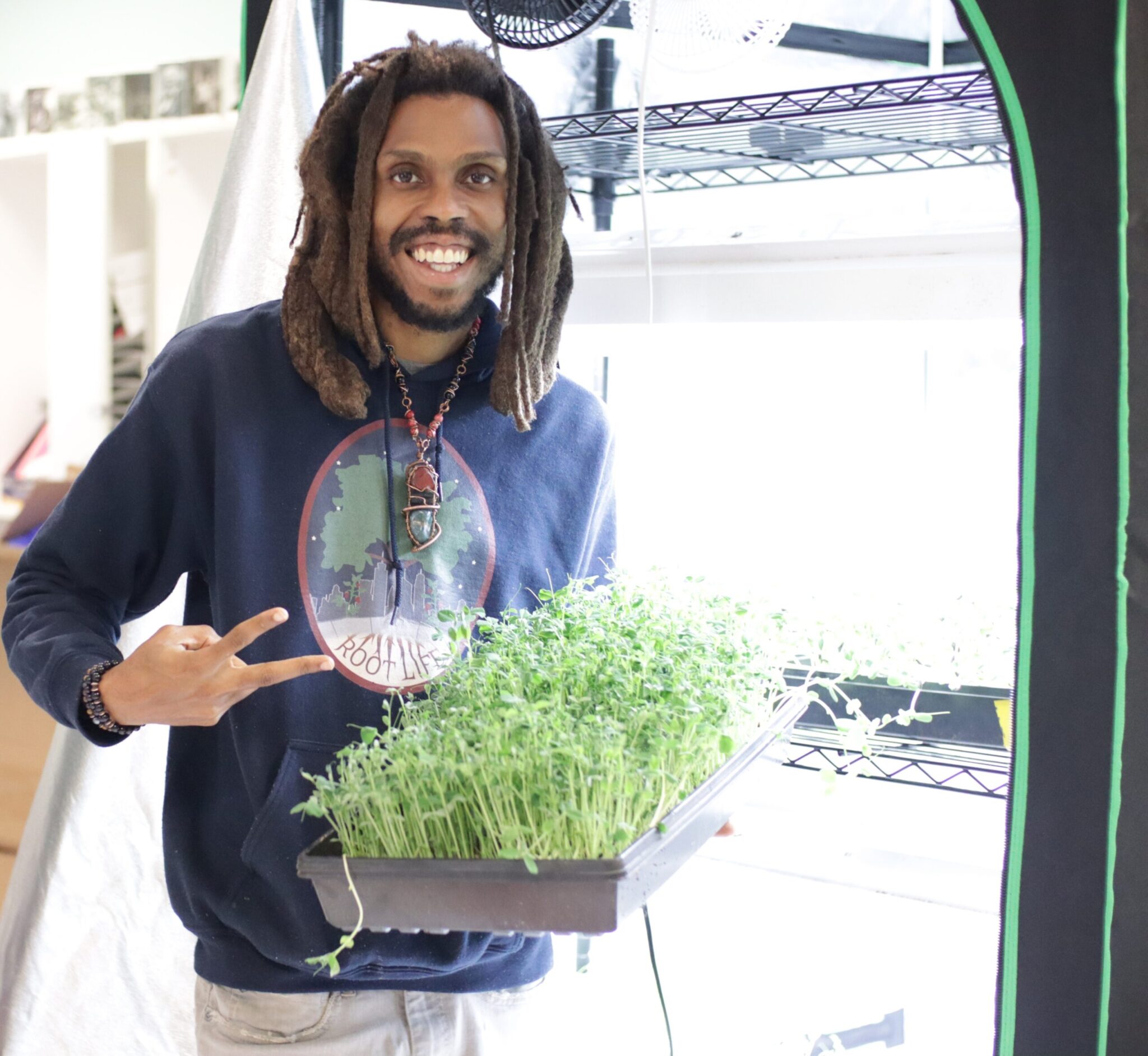“We grow community:” How urban agriculture has sprouted in New Haven
Amid the growth of community gardens across the state, urban farmers discussed food apartheid, guerilla gardens and Community Supported Agriculture.

Courtesy of Dishaun Harris
Editor’s note: This article was written in conjunction with the latest episode from the Yale Daily News’ Black History Month Special Issue. The episode titled “Black Farming: It’s in Our Blood” discusses urban agriculture and community with Root Life owner, Dishaun Harris.
Last month, Dishaun Harris started selling containers of his organic microgreens at New Haven’s City Seed Indoor Winter Market.
Harris, a New Haven native, created the urban agriculture company Root Life after working as a farmer and environmental educator at Common Ground High School for three and a half years. Harris now has over 10 years of urban farming experience, which he uses to manage community gardens across New Haven. In these gardens, he grows produce for his Community Supported Agriculture subscription programs and teaches youth and community members how to start gardens of their own. New Haven has over 50 community gardens.
Last year, Harris started a garden behind the Faith Temple Deliverance Center on Newhall Street — he also currently helps to manages the Armory Community Garden on County Street. Harris explained that community gardens provide increased access to fresh produce while serving as a means to strengthen and build community within New Haven.
“They allow [us], in a lot of spaces, to address food apartheid issues,” Harris said to the News. “So getting healthy food to local residents in ways they would not be able to get otherwise because it’s just not in their neighborhoods, their areas, their cities.”
The term, “food apartheid,” as opposed to “food desert,” highlights the racially discriminatory practices that underlie a lack of access to food in certain communities. Unlike a desert, Harris explained, apartheid is an unnatural, societally-driven occurrence.
Robert Peck, who is also known as the “Hood Farmer,” began urban farming in Connecticut after participating in an AmeriCorps program in Florida. He said that the effects of food apartheid in Tallahassee mirror what is happening in his hometown of Bridgeport.
Peck told the News that community gardens and unofficial “guerilla gardens,” where residents grow on public land, are crucial to the greater Bridgeport community.
“Especially with the way things have gone in the supermarket, that just allows people to have another space and it’s almost like stock when it comes to food,” Peck said. “People know that they can go to this space and tap in the way that they do and still produce something for their families.”
Through Hemp Milk & Honey, a Black-owned natural farm business based in Bridgeport, Peck aims to help people start their own gardens at home. He said he soon plans to transition the business into production farming, growing produce for sale.
When she moved to New Haven for her residency program at Yale in 2017, Hana Ali was searching for low-cost exercise programs similar to ones she attended in New York during medical school. Brought to the Armory Community Garden for discussions about starting a similar exercise program in her neighborhood, Ali quickly began gardening there. Ali said she soon found community and an “incubator for ideas” in urban gardening.
“We grow food and we grow flowers and natural medicines but then we also grow community and we grow ideas,” Ali told the News, “If there’s an older community member who you haven’t seen in a couple weeks, we know to go check in on them because we expect to see them there.”
Community members can support small farmers through CSAs, which are subscription services that guarantee consumers fresh produce regularly through the summer and provide farmers with the finances to get the growing season started.
Soon, Root Life will offer jams, juices and dried herbal blends at CitySeed’s market through their spring CSA program.
Correction 2/23: The article has been updated to reflect Harris’ role at the Armory Community Garden.







